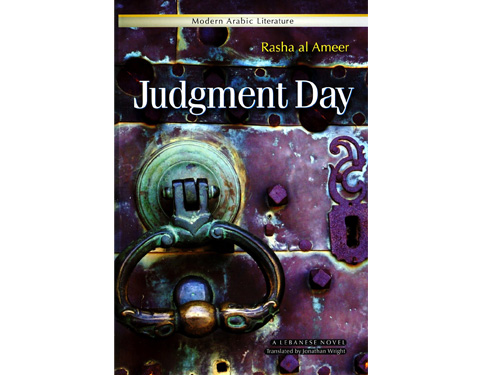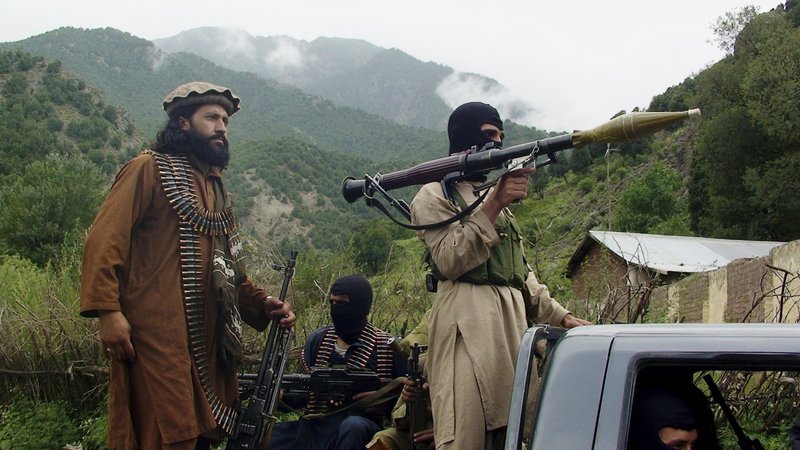
The imam who narrates Rasha al-Ameer’s “Judgment Day” is pulled in at least six different directions. The novel’s central character is claimed by a corrupt state, by Islamists, by the Quran, by poetry, by fame and by love. In a way, the eloquent TV-star imam is a Mutanabbi of our times.
Ameer’s novel, published in Arabic in 2002 and in English in the fall of 2011 (translated by Jonathan Wright), is constructed as the poetic memoirs of this unnamed imam. The imam is writing his life story as he is held in an Arab government’s “protective custody” after receiving death threats from Islamists. Throughout the imam’s memoirs, he writes of how state-sponsored mosques are being taken over by Islamists, and of his clashes with these Islamist forces.
The narrator of “Judgment Day” makes his stand firmly against the Islamists. He holds his position courtesy of a conservative Arab government (perhaps Syria) that placed him in this mosque in a more liberal country (perhaps the author’s native Lebanon). He is thus a government imam — or, at least, his eloquence is used by the government, just as Mutanabbi’s was sometimes used by the rulers of his day.
This battle alone is interesting and complex, and Ameer sympathetically portrays the state-sponsored imams who are struggling in vain to keep hold of their flocks. But the narrator’s situation puts him in a yet more complex position vis-a-vis both Islamists and the state.
The imam’s troubles — and blessings — multiply when he meets a young woman who wants his help in studying the poetry of Mutanabbi. The great Arabic poet is not just a literary device that encourages the two lovers to meet; his poetry is one of the central forces of the novel. At a recent book-launch event in London, Ameer spoke about the Quran and poetry as having a “rivalry.”
Thus, the corrupt state and strong-willed Islamists fight for the imam’s physical space just as Mutanabbi’s poetry and the language of the Quran war within him. Then another force develops: love.
The two lovers have barely acknowledged their feelings when the narrator’s mix of melancholy, eloquence and personal charisma takes him to an Islamic TV show and then to TV stardom. In this, the imam also inhabits Mutanabbi: His eloquence and controversial ideas bring him a wide audience in this unnamed Arab country. They also bring him danger. Eventually, our protagonist is kidnapped by the state to save his life. Or perhaps it was not to save him — the state also might have used the kidnapping story as an excuse for more crackdowns.
Although “Judgment Day” discusses heated events, they are relayed in the imam’s dense, sometimes poetic, sometimes pedantically footnoted style. The novel thus brings an ancient flavor to the discussion of hot “modern” topics such as sex, religion, politics and fame.
The novel’s almost fable-like feel is heightened by its refusal to name its characters or setting. The most obvious place to situate the action is between the author’s native Lebanon and its neighboring Syria. However, Wright, the translator, has suggested that the book also could be set between Morocco and Algeria.
The absence of names makes Ameer’s book harder to grasp, and the book requires an attentive, engaged reader throughout. But the lack of names also makes the characters harder to box up. Our unnamed narrator is a complex human being. He is not just an imam who betrays his religious training for a lover; he is not just a religious leader who trades on his eloquence for fame; he is not just a preacher who works in the service of a corrupt government. He is perhaps these things, but he is also much more.
All this forces us to look beyond our usual ideas of religion, religious leaders and contemporary political struggles. Instead, we are returned to the universals that interested Mutanabbi: the essence of humanity, spirituality and identity. In the end, pride brings our narrator down, as pride perhaps brought down Mutanabbi. But in Ameer’s story, love can — and does — redeem.




